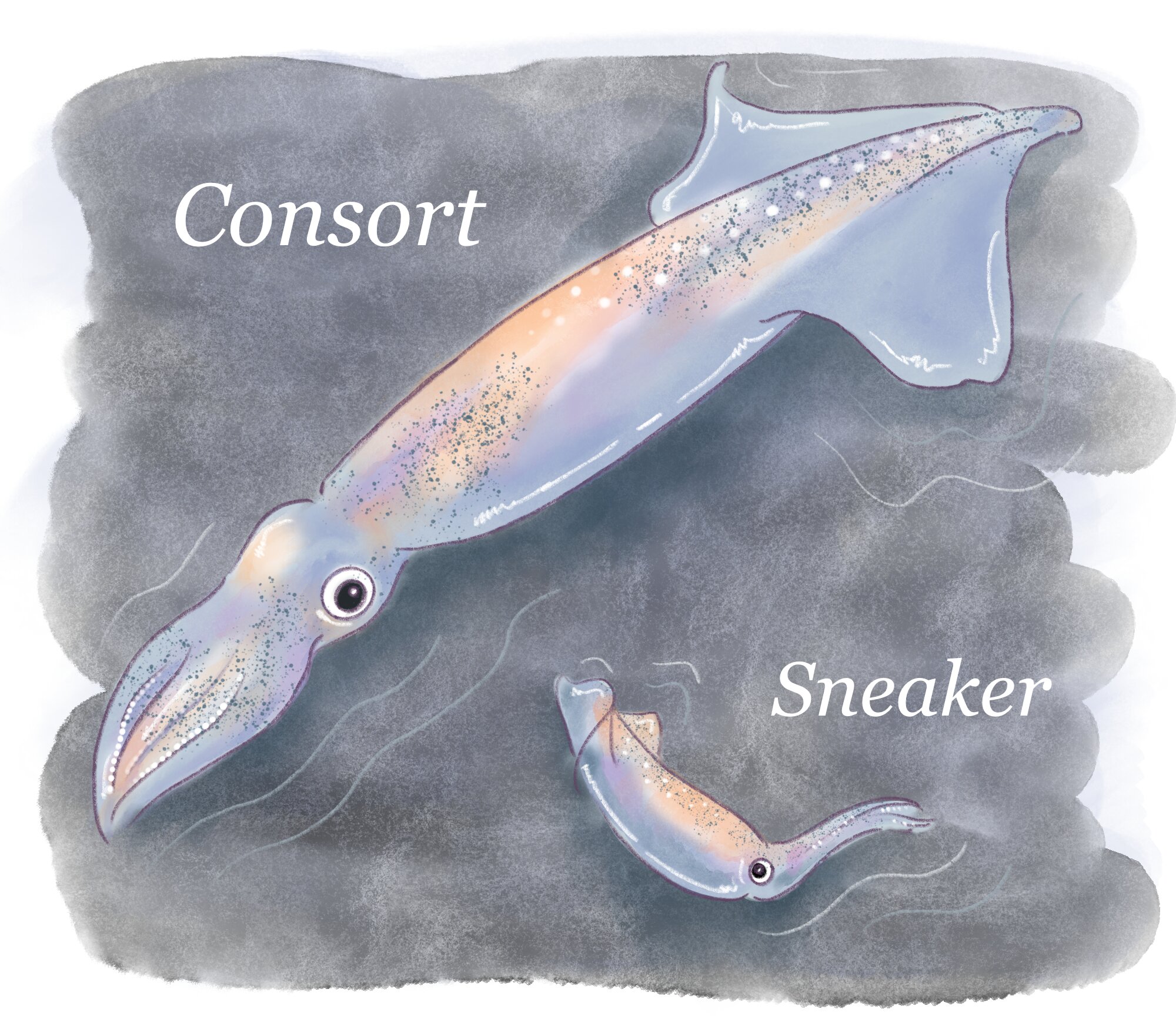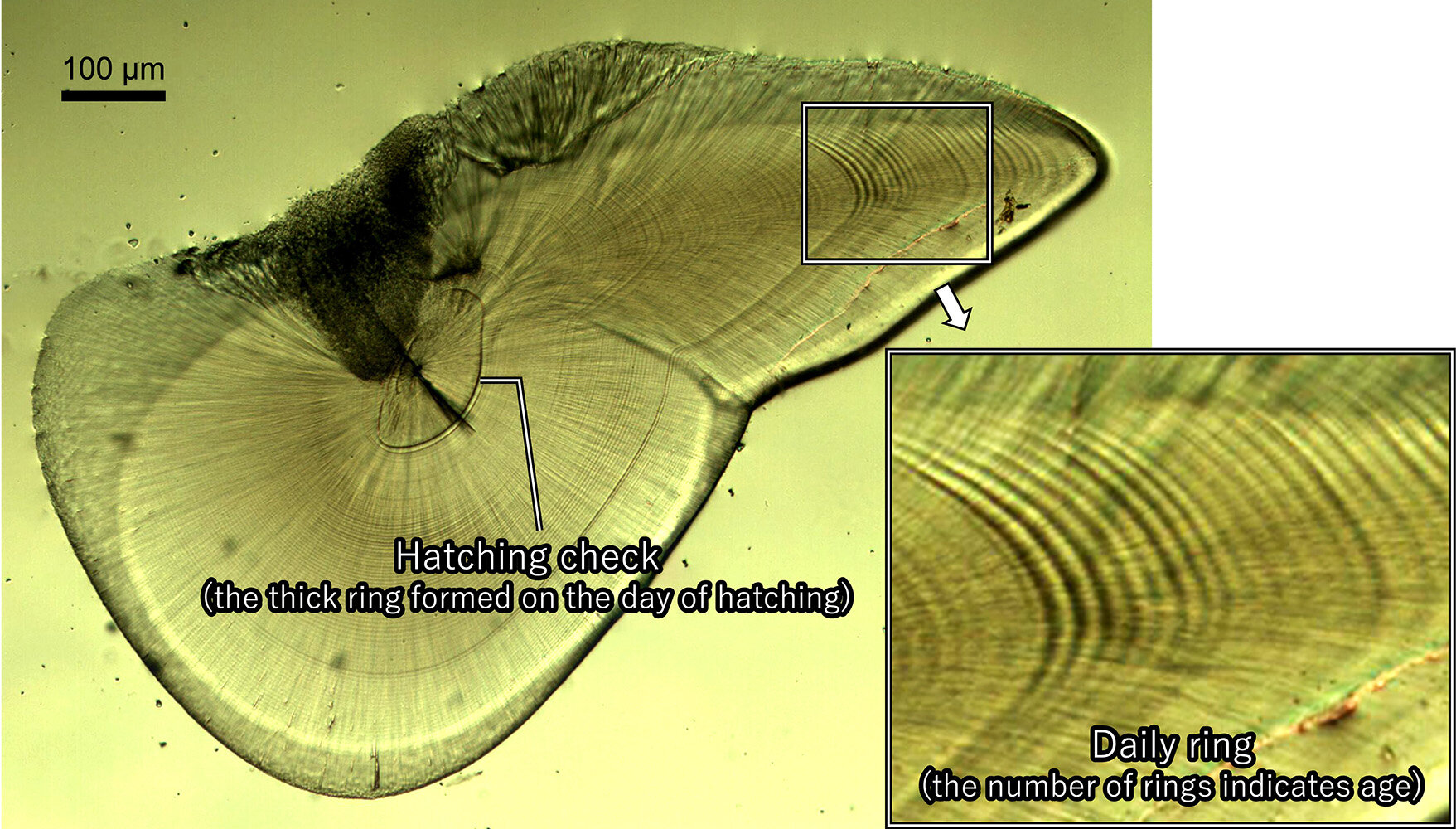As we all know, astrology is not a real science. However, when you’re a squid the day you hatch is perhaps more important than you might think. New research has revealed that the day a male squid hatches is linked to which mating tactic he will use for the rest of his life.
Spear squid (Heterololigo bleekeri) can either be “sneakers” or “consorts”, write the authors of a new study. The consorts are more likely to fight for mating opportunities while the sneakers – as the name suggests – use less overt tactics to win over a female. The team found that the traditional consorts hatched earlier in the season than the sneakers.
“Our results showed that the hatching date determines the whole life trajectory in this species,” said Associate Professor Yoko Iwata from the Atmosphere and Ocean Research Institute at the University of Tokyo, in a statement.
The consorts fight for opportunities and then place their sperm directly inside the female; they will even guard their female while she lays her eggs. The sneakers, by contrast, sneak up to a female and place their sperm on her outsides, in the hopes of fertilizing her nearby eggs.
Between early April and mid-July, the male squids that hatched were able to become larger and develop into consorts. The sneaker squids were hatched in early June through to mid-August and did not become as large. During the overlap in the month of July, the squids had an equal chance of becoming either of the two mating types.
What is extra interesting is even if a squid that was born earlier managed to grow to the size of a sneaker by the early breeding season, it would not breed and would instead concentrate on becoming large enough to become a consort.

Consorts will fight for mating opportunities, while sneakers lie in wait for their moment.
Image credit: © 2024 Nicola Burghall
“The difference in hatch date means that the squid experience different environmental conditions in early life, which may influence the growth trajectory. If an extreme environmental event, such as an ocean heat wave, happens during the hatching season, it could affect the squid’s mature body size and subsequent mating tactic. This would also impact the amount that could be commercially caught enormously,” continued Iwata.
Until now this idea, which is called the “birth date hypothesis”, has only been seen in fish; this discovery suggests that this could be present in a lot more species than previously thought.
The researchers were expecting to find a big difference in growth rate between the sneakers and the consorts as they grow in different seasons. However, the results showed that there was not a big difference, which is extra surprising because of how sensitive squid are to environmental conditions.
To age a squid, the team uses a structure called a statolith, which grow every day in layers and are similar to tree rings in the way they can be used to measure age. The layers also contain microelements that can help explain environmental conditions in the water when the layer was formed.

The ring in the middle is the hatching check mark from the day the squid hatched.
Image credit: © 2024 Shota Hosono
The team now plan to look at the environmental conditions present in a squid’s earlier life and see if this plays a part in which mating tactic they eventually use.
The study is published in Proceedings Of The Royal Society B: Biological Sciences.
Source Link: Horoscopes For Squid? Their Dates Of Birth Determine How They Will Mate